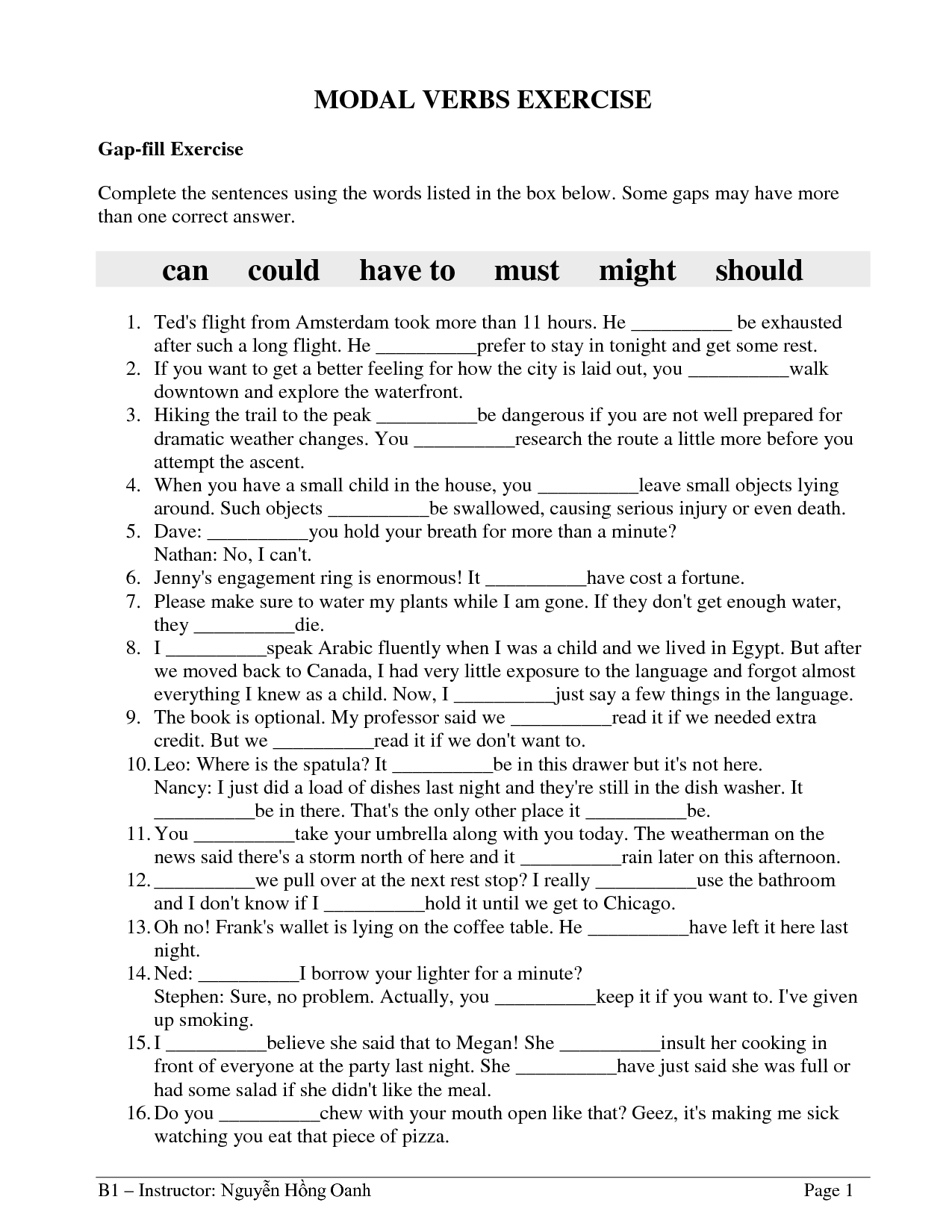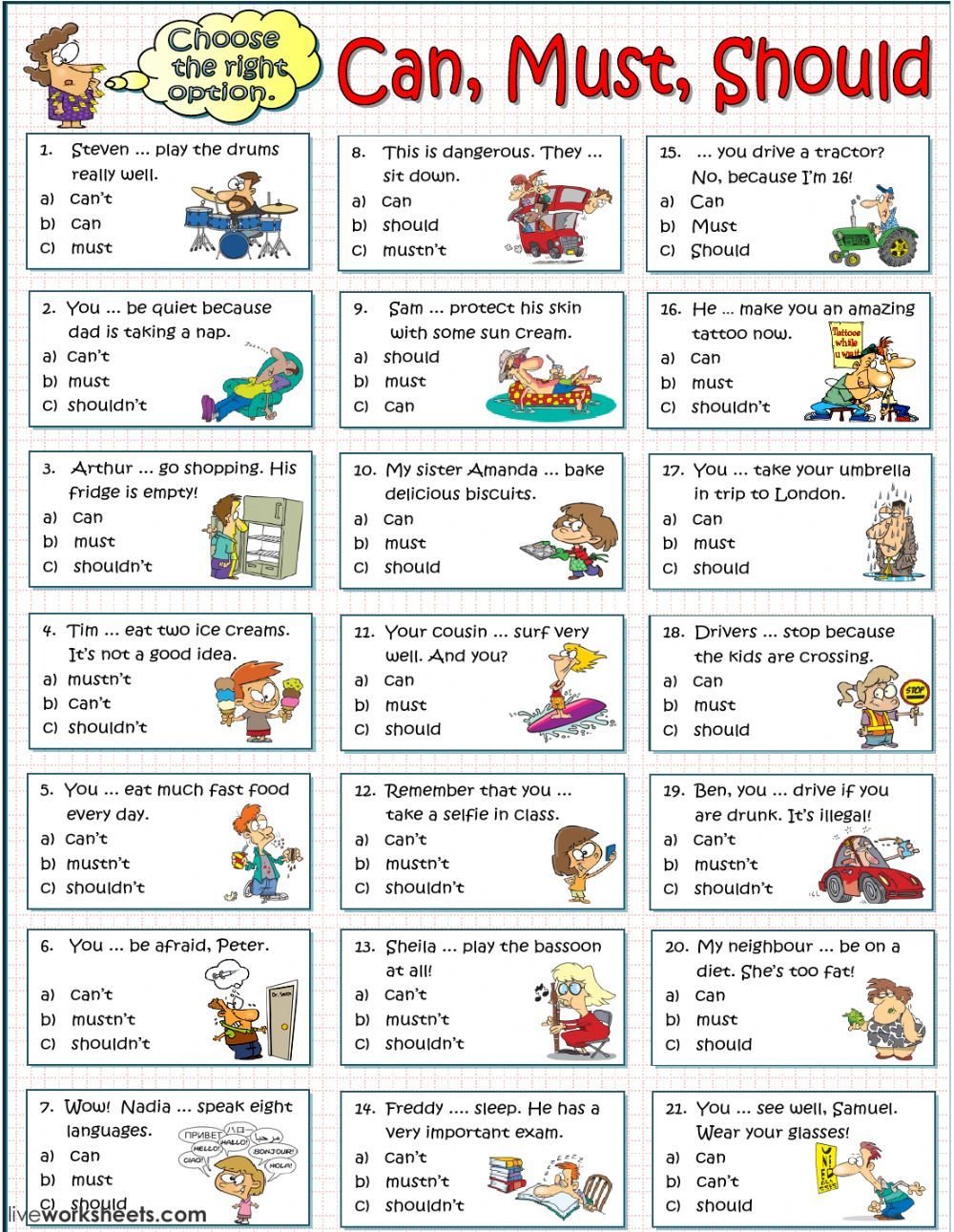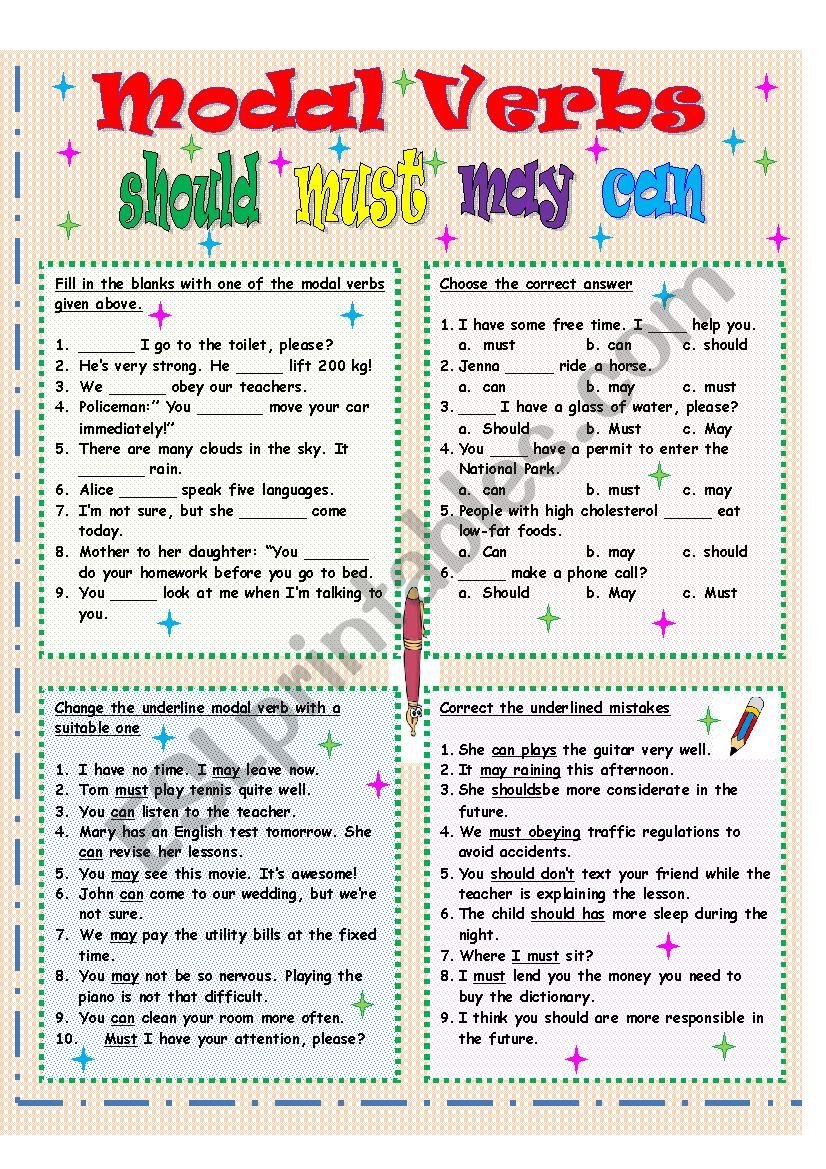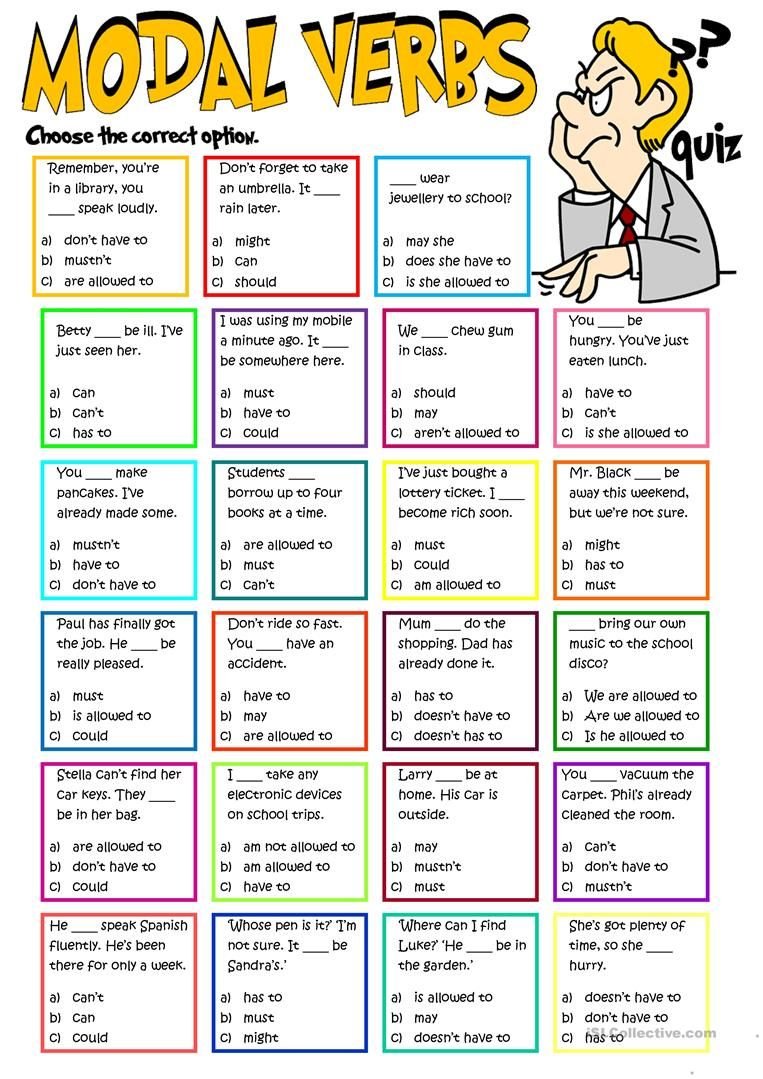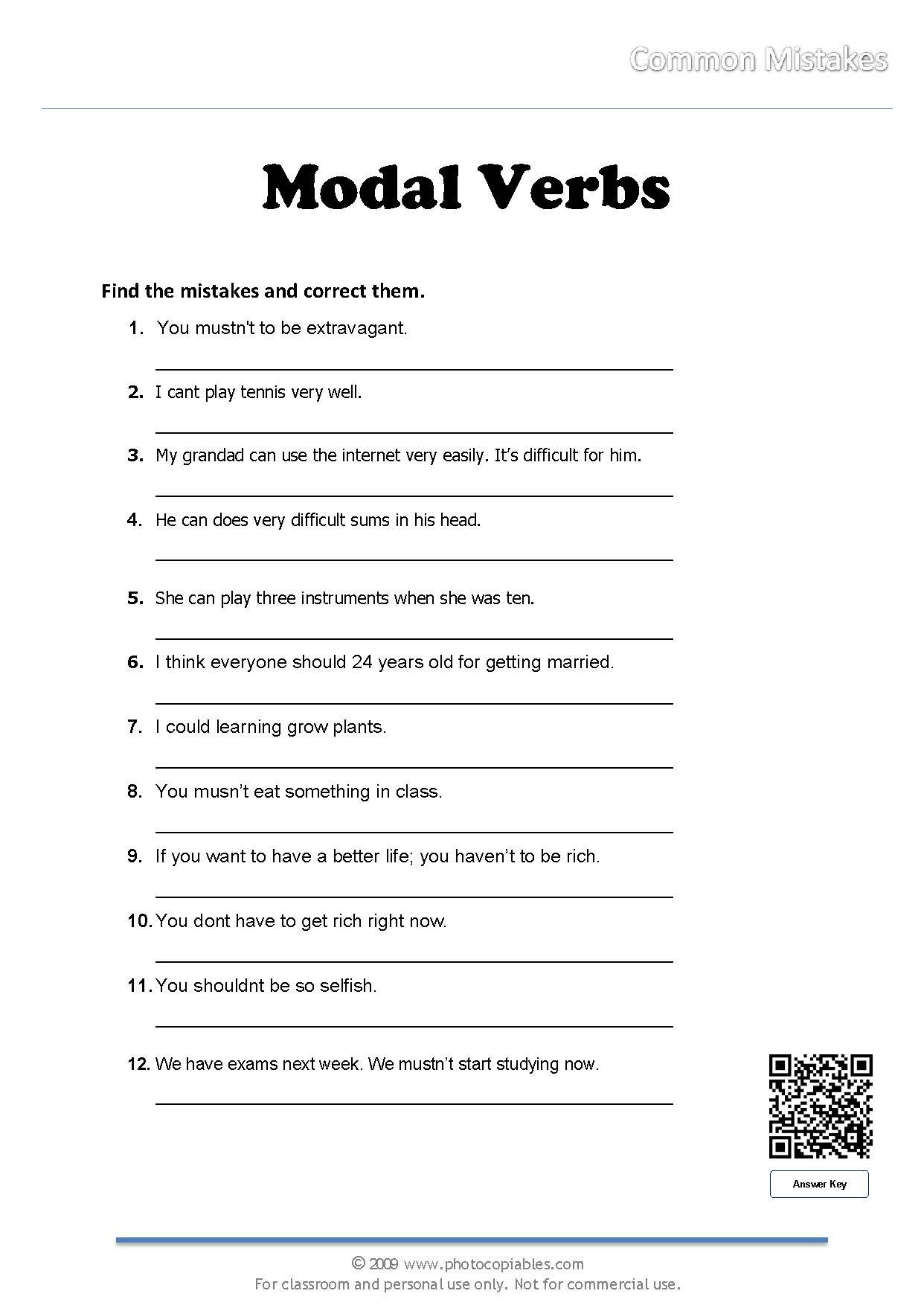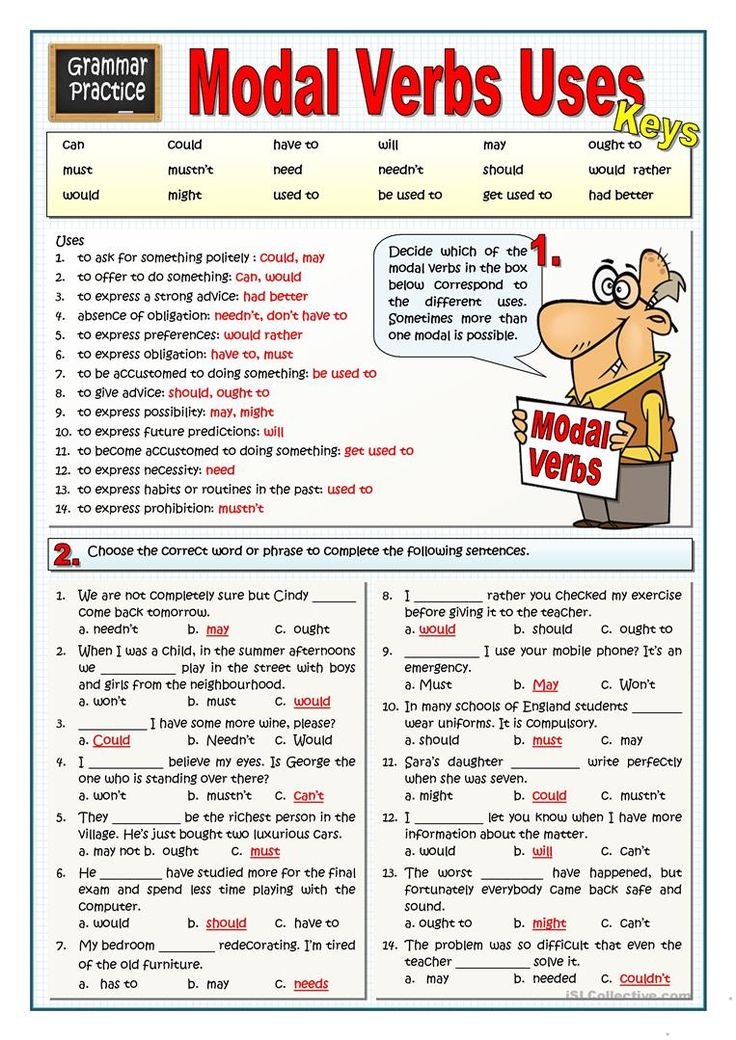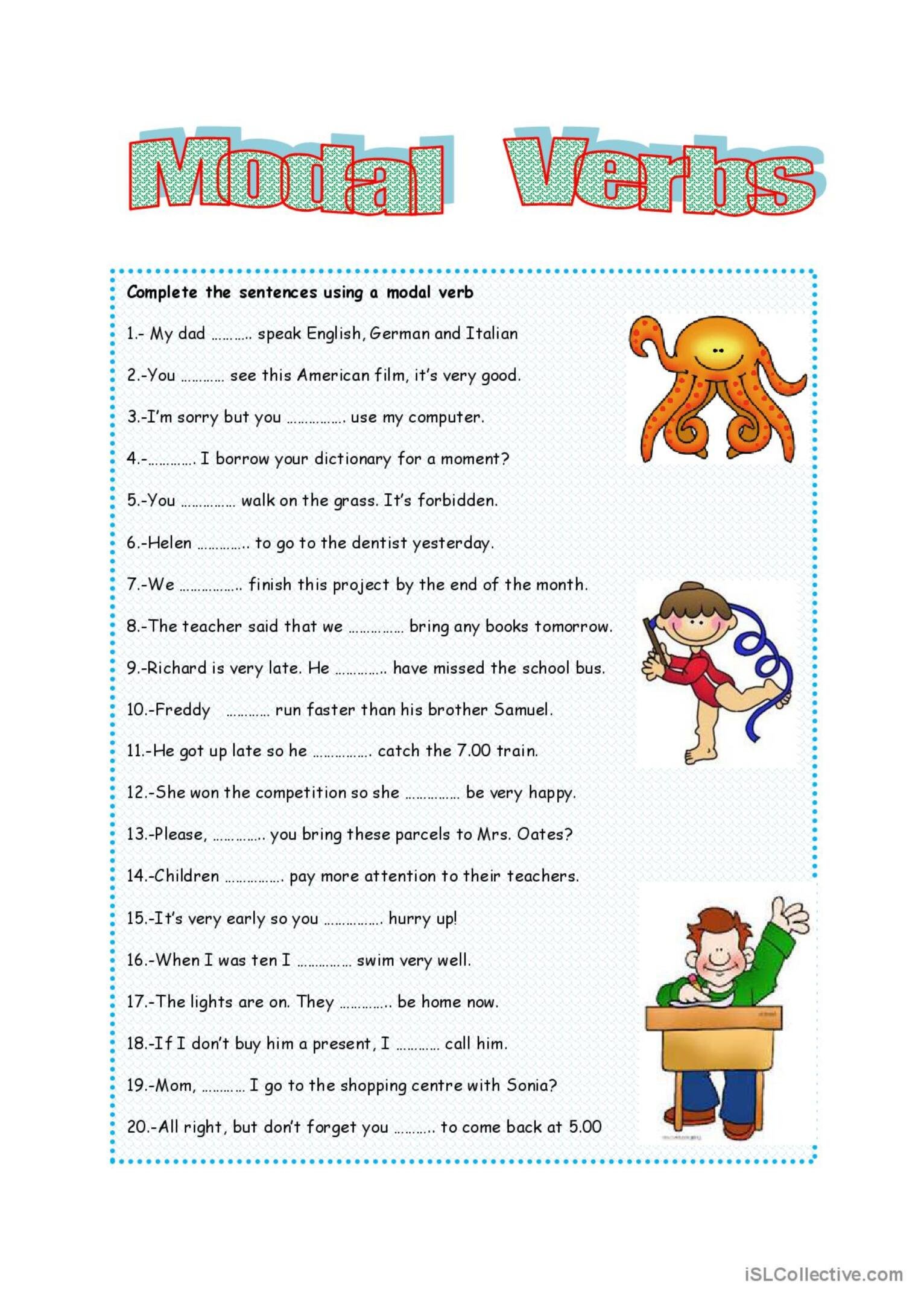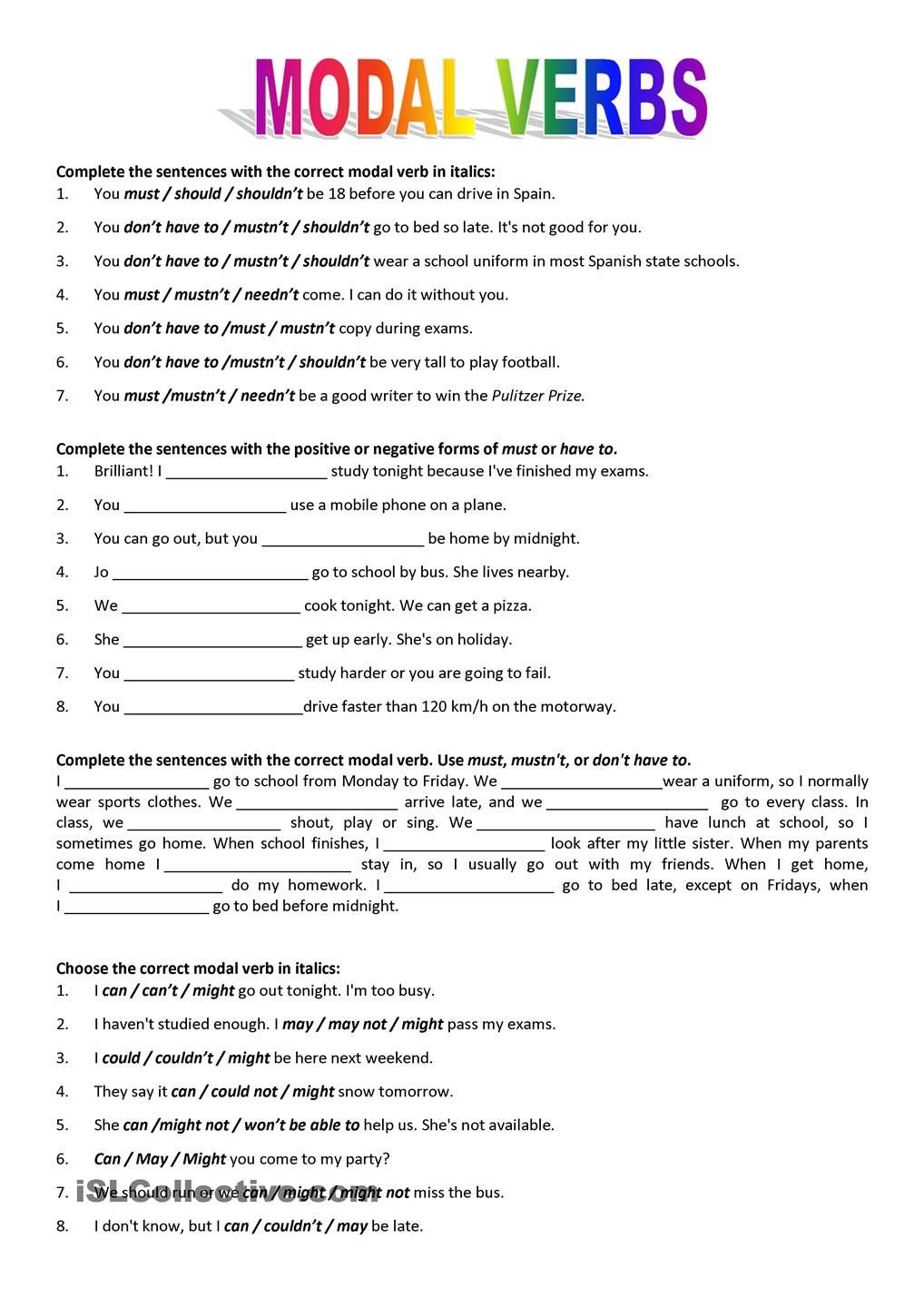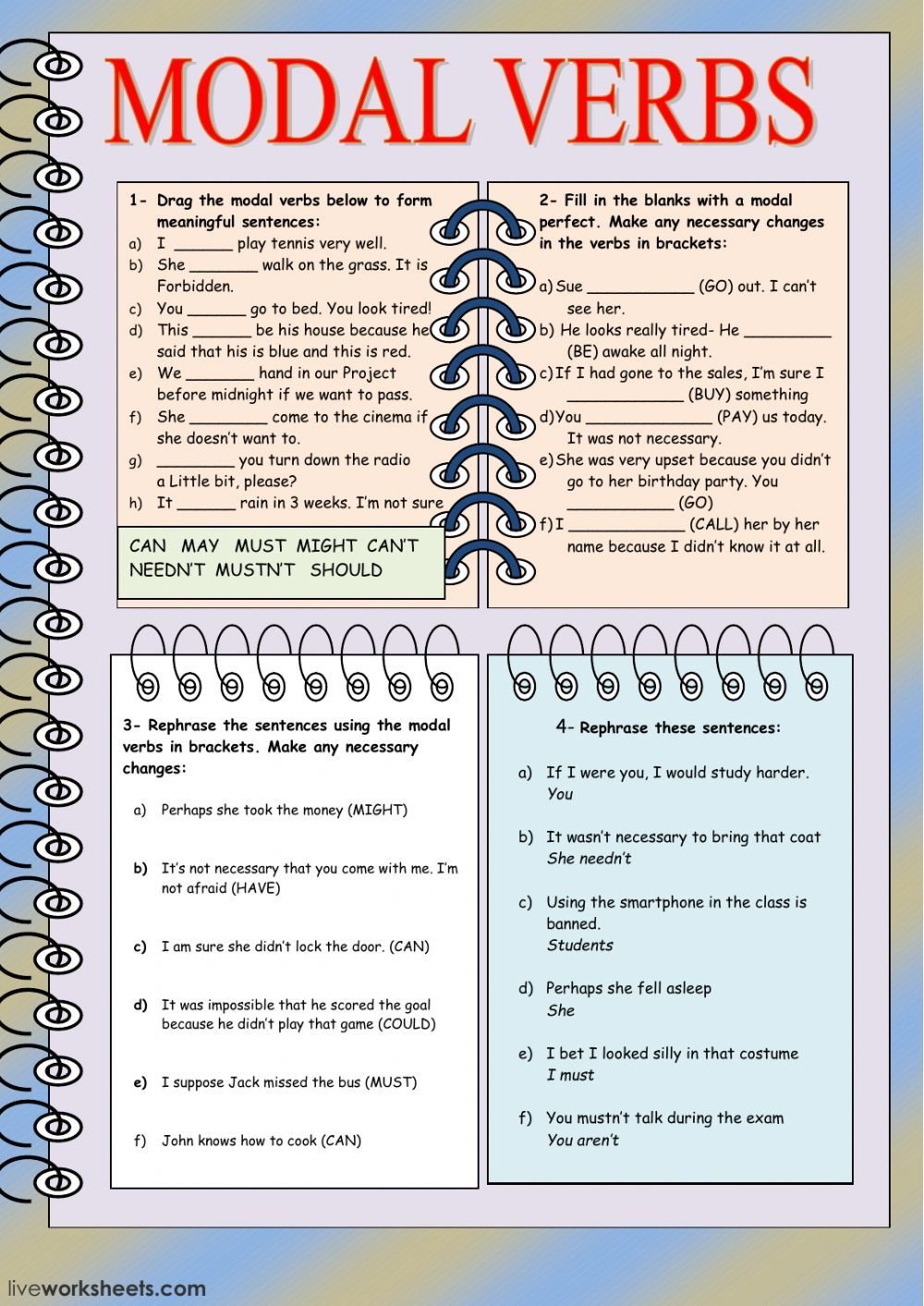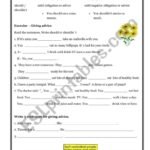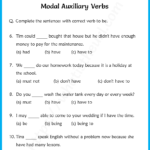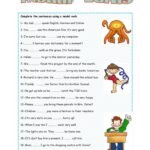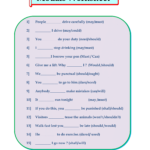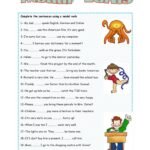Modal Verbs Exercises Advanced Worksheets
Modal verbs are an essential part of English grammar. They are used to express various degrees of possibility, obligation, permission, ability, and advice. To enhance your understanding and usage of modal verbs, advanced worksheets can be a great resource. These exercises are designed to challenge your knowledge and help you become more proficient in using modal verbs.
Exercise 1: Expressing Probability
In this exercise, you will practice expressing probability using modal verbs such as ‘must,’ ‘might,’ ‘could,’ and ‘can’t.’ Choose the correct modal verb to complete each sentence.
Example: It ________ rain tomorrow. (must / might / could / can’t)
Answer: It might rain tomorrow.
1. She ________ be at work; her car is in the parking lot. (must / might / could / can’t)
2. They ________ have forgotten about the meeting. (must / might / could / can’t)
3. He ________ finish the project on time. (must / might / could / can’t)
4. The movie ________ start at 8 PM. (must / might / could / can’t)
Exercise 2: Expressing Obligation
In this exercise, you will practice expressing obligation using modal verbs such as ‘must,’ ‘have to,’ and ‘should.’ Complete each sentence with the appropriate modal verb.
Example: You ________ apologize for your behavior. (must / have to / should)
Answer: You should apologize for your behavior.
1. We ________ finish this report by tomorrow morning. (must / have to / should)
2. Students ________ respect their teachers. (must / have to / should)
3. She ________ be more careful while driving. (must / have to / should)
4. You ________ follow the instructions carefully. (must / have to / should)
Exercise 3: Expressing Ability
In this exercise, you will practice expressing ability using modal verbs such as ‘can,’ ‘could,’ and ‘be able to.’ Fill in the blanks with the correct modal verb.
Example: She ________ speak five languages fluently. (can / could / be able to)
Answer: She can speak five languages fluently.
1. I ________ swim when I was five years old. (can / could / be able to)
2. They ________ solve complex math problems. (can / could / be able to)
3. We ________ find a solution to this problem. (can / could / be able to)
4. He ________ play the guitar since he was a child. (can / could / be able to)
Exercise 4: Expressing Advice
In this exercise, you will practice expressing advice using modal verbs such as ‘should,’ ‘ought to,’ and ‘had better.’ Choose the correct modal verb to complete each sentence.
Example: You ________ study harder if you want to pass the exam. (should / ought to / had better)
Answer: You should study harder if you want to pass the exam.
1. She ________ be more organized to meet the deadlines. (should / ought to / had better)
2. They ________ ask for help when they are struggling. (should / ought to / had better)
3. We ________ take a break and relax. (should / ought to / had better)
4. He ________ listen to the advice of experienced professionals. (should / ought to / had better)
These advanced worksheets provide an opportunity to practice and reinforce your understanding of modal verbs. By completing these exercises, you will enhance your ability to use modal verbs accurately and confidently in various contexts.
Modals ESL Worksheets Worksheetocom
Past Modal Verbs Exercises Advanced
Modal Verbs Exercises Past Modals Modal Verbs Ficha I
MODAL VERBS USES Worksheet
Modal Verbs Exercises
Grade 5 Modal Verbs Worksheets With Answers Thekidsworksheet
